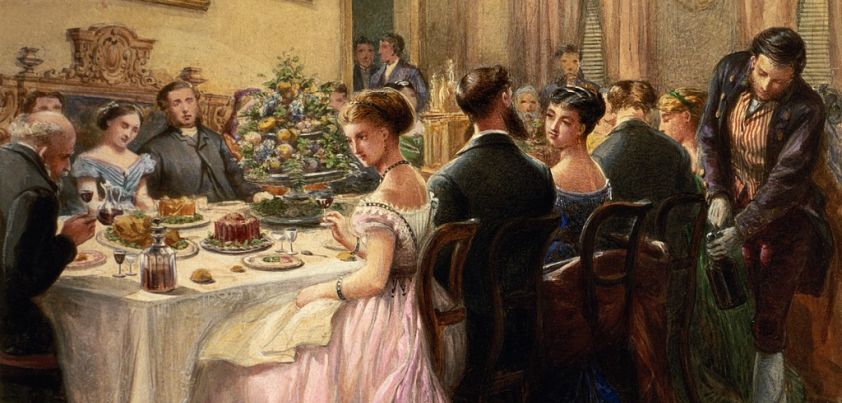 This story from Gabriel Garcia Márquez takes place in the narrator’s mind. While in a dream state, the man’s unconscious reflects his lack of connection in the real world by conjuring up an ongoing relationship with a woman in which each desires the other but they cannot touch. In the man’s absence, the woman wanders the city searching for him, calling out and writing Eyes of a Blue Dog, code words by which they will recognize each other. When awake, the man has no recollection of the dreams. Themes include loneliness and isolation, love and desire, frustration, longing, connection. More…
This story from Gabriel Garcia Márquez takes place in the narrator’s mind. While in a dream state, the man’s unconscious reflects his lack of connection in the real world by conjuring up an ongoing relationship with a woman in which each desires the other but they cannot touch. In the man’s absence, the woman wanders the city searching for him, calling out and writing Eyes of a Blue Dog, code words by which they will recognize each other. When awake, the man has no recollection of the dreams. Themes include loneliness and isolation, love and desire, frustration, longing, connection. More…
All posts by shortsonline
Where Are You Going, Where Have You Been?
 The plot of this award-winning story by Joyce Carol Oates in a nutshell: attractive, self-absorbed, rebellious teen under Why can’t you be like your big sister? pressure meets a predatory psychopath with, one imagines, predictable results. What sets the story apart is the way Oates, using dialogue alone, transforms a cautionary tale for young women into a psychological thriller that gradually develops into a horror story. Themes include search for identity, independence, sexuality and control, appearance vs. reality, malevolence, psychological manipulation and (if you believe Connie really sacrificed herself for her family), self-sacrifice. More…
The plot of this award-winning story by Joyce Carol Oates in a nutshell: attractive, self-absorbed, rebellious teen under Why can’t you be like your big sister? pressure meets a predatory psychopath with, one imagines, predictable results. What sets the story apart is the way Oates, using dialogue alone, transforms a cautionary tale for young women into a psychological thriller that gradually develops into a horror story. Themes include search for identity, independence, sexuality and control, appearance vs. reality, malevolence, psychological manipulation and (if you believe Connie really sacrificed herself for her family), self-sacrifice. More…
The Dinner Party
 The theme of Mona Gardner’s The Dinner Party is gender stereotyping. The story is a satire of attitudes towards women in upper class colonial England. It begins with a debate over dinner between an army officer and young girl. The officer argues that men are better than women at staying calm during a crisis. The host’s wife proves him wrong by demonstrating nerves of steel when the guests are threatened by a deadly visitor. Although one of the other guests foreshadows the looming danger, the full extent of the woman’s courage is not evident until the final paragraph. More…
The theme of Mona Gardner’s The Dinner Party is gender stereotyping. The story is a satire of attitudes towards women in upper class colonial England. It begins with a debate over dinner between an army officer and young girl. The officer argues that men are better than women at staying calm during a crisis. The host’s wife proves him wrong by demonstrating nerves of steel when the guests are threatened by a deadly visitor. Although one of the other guests foreshadows the looming danger, the full extent of the woman’s courage is not evident until the final paragraph. More…
The Third Wish
 This story from Joan Aiken takes the form of a “three wishes” fairy-tale. The protagonist does something very unusual for someone given three wishes. He decides not to make the third wish. When asked why, he says: I’ve learned that even if your wishes are granted they don’t always better you. Themes: 1) change (it is wrong to force change on someone who is happy as they are); 2) family (for many people, family ties are just as important as a happy marriage); and 3) sacrifice (true love means being prepared to let someone go if it makes them happier). More…
This story from Joan Aiken takes the form of a “three wishes” fairy-tale. The protagonist does something very unusual for someone given three wishes. He decides not to make the third wish. When asked why, he says: I’ve learned that even if your wishes are granted they don’t always better you. Themes: 1) change (it is wrong to force change on someone who is happy as they are); 2) family (for many people, family ties are just as important as a happy marriage); and 3) sacrifice (true love means being prepared to let someone go if it makes them happier). More…
At the Pitt-Rivers
 In this story by Penelope Lively, a sixteen-year-old boy regularly visits the Pitt-Rivers museum to “mooch around and be on his own”. One day, he notices a woman of about thirty waiting for someone. Although ordinary looking, her face glows in a way that makes him feel good. His views on “correctness” in relationships are challenged when she greets a man in his fifties she obviously loves. The couple meet frequently at the museum. He watches as their relationship grows and, one day, crumbles. Her glow fades to a look of despair. Themes include beauty, teen dating, non-traditional love, disillusionment. More…
In this story by Penelope Lively, a sixteen-year-old boy regularly visits the Pitt-Rivers museum to “mooch around and be on his own”. One day, he notices a woman of about thirty waiting for someone. Although ordinary looking, her face glows in a way that makes him feel good. His views on “correctness” in relationships are challenged when she greets a man in his fifties she obviously loves. The couple meet frequently at the museum. He watches as their relationship grows and, one day, crumbles. Her glow fades to a look of despair. Themes include beauty, teen dating, non-traditional love, disillusionment. More…